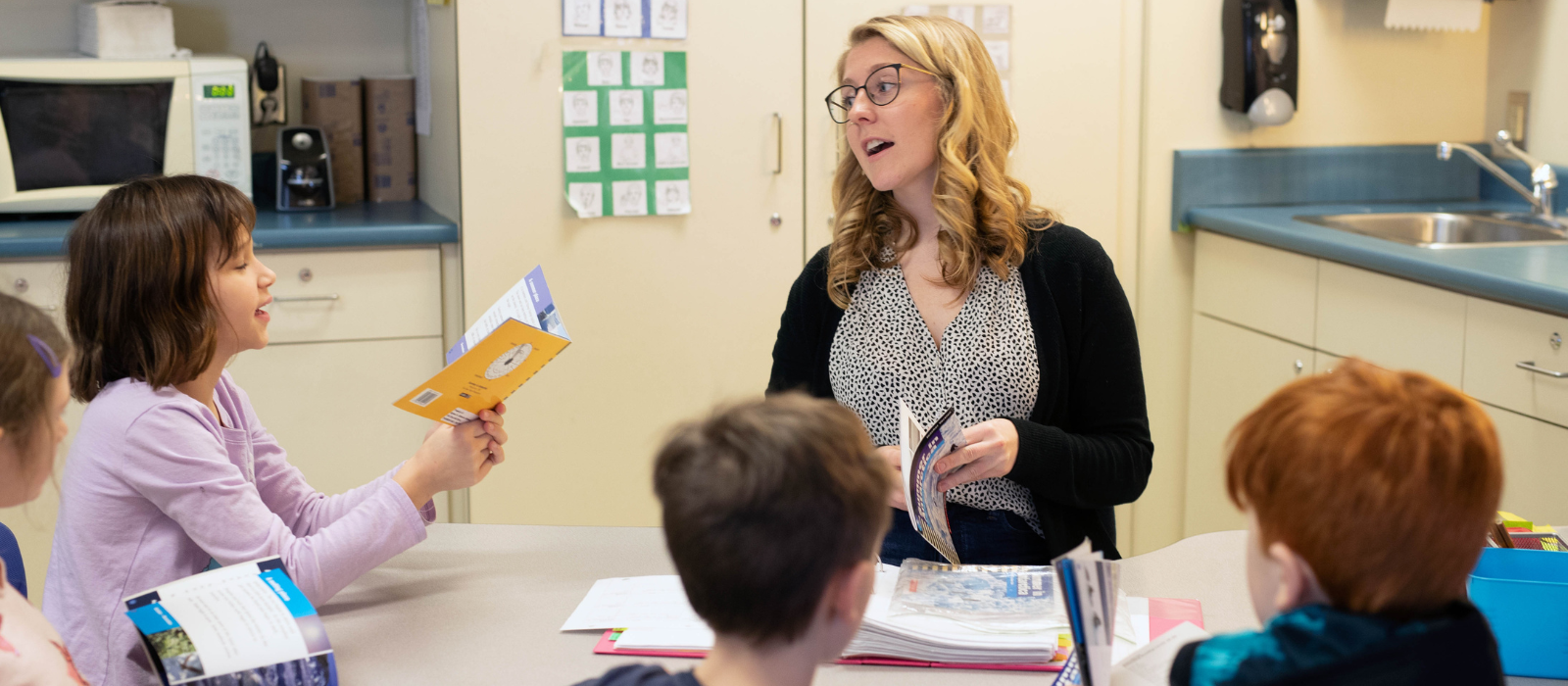Making a difference in children’s education


Children are the future, and ensuring they get a quality education is of the utmost importance. Unfortunately, Canada is facing a shortage of teachers, driven by rising school enrolments, teacher retirements and education funding cuts. Rural, remote and Indigenous communities are particularly disadvantaged. Canadian universities are introducing innovative teacher education programs to fill these gaps and train the next generation of teachers.
Between the 2016/17 and 2020/21 academic years, there was a 20.23% increase in youth enrolled in public elementary and secondary schools, but only a 6.2% increase in educators.
Sources: Table 37-10-0007-01 and Table 37-10-0153-01, Statistics Canada, 2022.
There are over 83,000 students studying in education-related fields at Canadian universities.
Source: Table 37-10-0018-01, Statistics Canada, 2022.
Canadian universities offer 1,795 programs in education.
Source: Database of Canadian university study programs, University Study, 2023.
Often, those from rural communities must leave their hometowns to access post-secondary education and many do not return. Programs such as the University of British Columbia’s rural and remote teacher education program (RRED) allow individuals to earn their degree while living and working in schools in their rural and remote communities. Vancouver Island University has applied to offer a similar remote Bachelor of Education program for those living in the Northwest Territories, allowing them to become fully accredited teachers without leaving their communities. To make education programming accessible to adult learners and working professionals, Queen’s University offers a multi-session program with flexible learning schedules and training locations.
Indigenous education is an important part of Canada’s commitment to Truth and Reconciliation. The longest running Indigenous education program in Northern America, offered by the University of Saskatchewan, celebrated its 50th anniversary in July 2023. Many other institutions across Canada have established Indigenous teacher education programs, such as the University of British Columbia, First Nations University of Canada and Queen’s University.
These programs focus on increasing the number of First Nations, Métis and Inuit teachers, preparing them to offer high-quality and culturally relevant education in their communities. They also prepare learners to teach through an Indigenous lens at public and independent schools in any community.
The teacher shortage is particularly acute in Francophone communities and in French as a second language programs across Canada. A 2020-2021 nationwide survey revealed a shortage of 10,000 French as a second language and immersion teachers, while demand for French-language education is on the rise.
Canadian universities are training more French teachers to address this shortage, like five institutions in the Université de Québec network, which have joined forces to offer a certificate training French-language substitute teachers for secondary schools. The University Ottawa also relaunched its French language education technology teaching program, aimed at preparing teachers to teach technical courses in French.